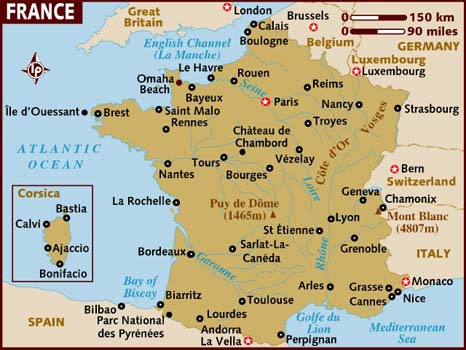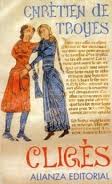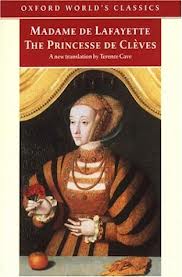Introduction to French Literature (Summer 2013)
- Introduction to Series
- Cligés
- Cligés v. Tristan and Isolde
- 17th Century France / Moliére: The Misanthrope
- Madame de Lafayette: The Princess de Cléves

Introduction to French Literature (Summer 2013)

Additional Resources for Studying French LiteratureFrench History, Famous French Links, French Language Info, Francophone Regions |

Hello All, and welcome back to another exciting radio series. This summer, I discuss French literature. Everything from Medieval France to early 20th century. With this series I hope to provide you all with deeper understanding of the development of French literature as writers over time encountered new beliefs ideologies and political forces. Early episodes will highlight early philosophical, scientific and romantic ideas from Medieval France, much of which carried over into later French writings. Later episodes will highlight the role of political strife and international influences on French literature. You don't want to miss one episode! Stay tuned.
 Free Online Version of Text
Free Online Version of Text
This week’s episode opens up a discussion on Cligés, one of Chrétien de Troyes' few Arthurian romances. The themes of love, honor and valor are all present in abundance in this tale. This week, I focuse on the theme of love, as I look at how love is depicted and treated in this story. Like most Medieval stories on love, the lovers tend to be afraid to show their love to one another out of fear of rejection. In the case of the lovers in Cligés this resolve with a match maker. I also look at the themes of valor and honor. Next week I continue my discussion on Cligés. Stay tuned!
.*In this episode I mistakingly use Alis (Alexander's brother) in place of the King who betrays King Author and attempts to take the kingdom entrusted him.*
 Free Online Version of Tristan and Isolde
Free Online Version of Tristan and Isolde
This week’s episode continues from last week's. However, Introduce you to Tristan and Isolde, one of Medieval Europe's best known romances. The reason I introduce you to this text is because I feel it is highly referenced in Cligés. De Troyes uses the the story or Tristan and Isolde to mock the fans of Tristan and Isolde. In my view De Troyes sees the relationship between Tristan and Isolde as not only adulterous, but also demeaning to women as Isolde is forced to share her body with two men, as opposed to Fenice sharing both her heart and body to one man, Cligés. This episode also discusses the role of magic and the match maker in Medieval Europe. Enjoy! Next we move to 17th century French literature as I discuss Moliere. You don't want to miss it!
 Free Online Version of The Misanthrope
Free Online Version of The Misanthrope
This week’s episode takes a leap into 17th century France and the influence of Louis XIV. I provide an in depth discussion of the role Louis XIV played in molding what was to become the center of European culture during his 72 year reign. In doing so, I draw upon the role of the salons and academies, which both became prominent in forming the 17th century French literature. Examples of fairy tales by Perault are discussed, before we look at Moliére and the "Misanthrope". My view is that Moliére uses comedy to criticize 17th century French society. What do you think?
 Free Online Version of The Princess de Cléves
Free Online Version of The Princess de Cléves
This week’s episode follows the trajectory put forth in last week's episode. Application of the idea of the "belle esprit" is provided, as I share with you my insight into how one obtains and nurtures this spirit in a culture molded by Louis XIV. I also look at the notions of love in the 17th century courts as compared to the courts of Medieval France. Using this text, I am able to show that while much of what we learned of love in the French Medieval court is still present in 17th century France, there has been, nonetheless, some changes, one which may involve a larger role of the mind, something that might have been absent in Medieval French love. It is this difference that allows us to characterize The Princess de Cléves as a psychological novel. Attention is also given to the use of the mind to control emotions rather than the heart, something Louis XIV undoubtedly strove to implement into his society. Enjoy another wonderful episode!